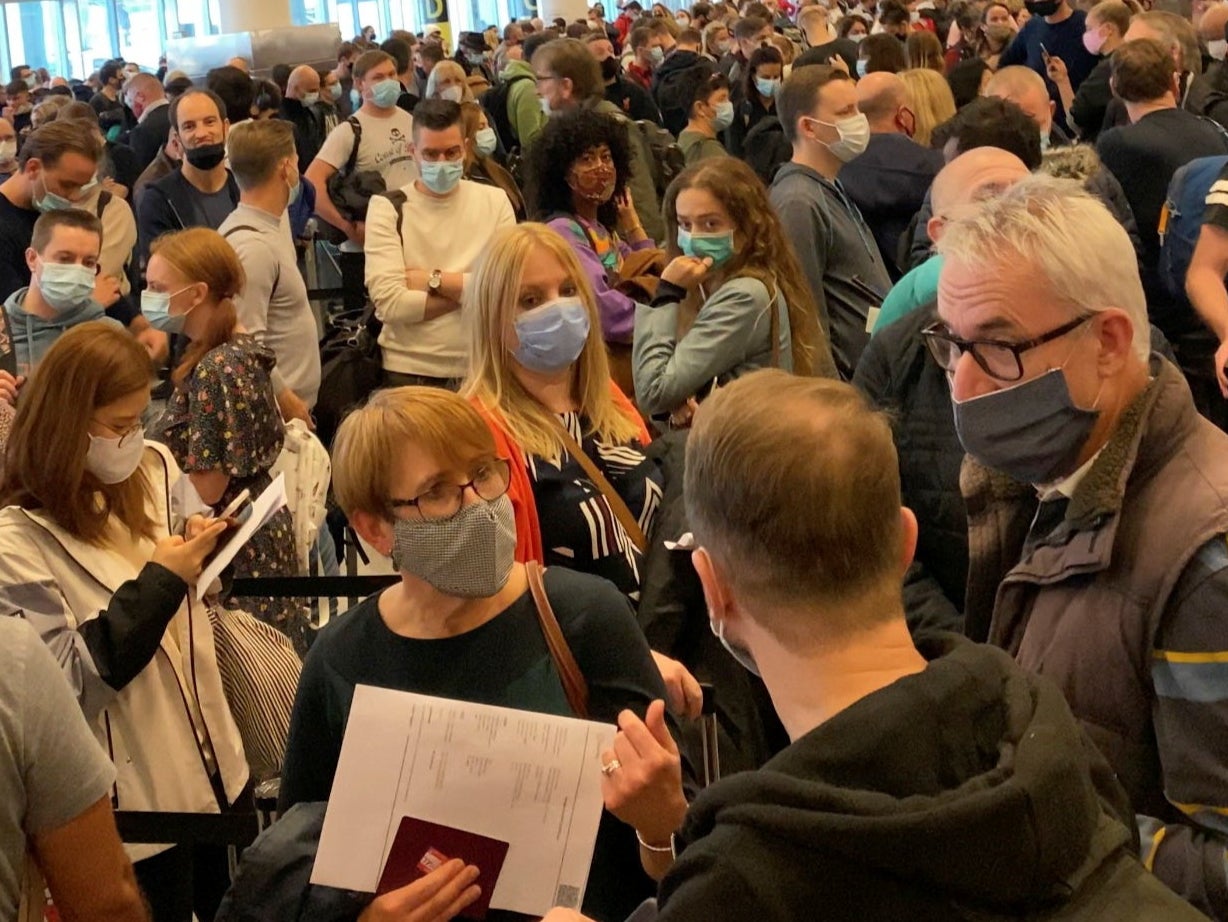The Independent's journalism is supported by our readers. When you purchase through links on our site, we may earn commission.
Study explains why some people test negative for Covid even though everyone around them is infected
Findings open possibility for new vaccines that are stronger and more durable against Covid

New research has found why some people are more resistant to Covid-19 and test negative despite exposure to the infection, while it spread rapidly through millions of others.
A team at the University College London found the link between resistance to Covid-19 and T-cells present in the immune system that can clean up SARS-CoV-2 and other infections of the coronavirus family at a nascent stage, opening the possibility for new vaccine technology.
“Everyone has anecdotal evidence of people being exposed but not succumbing to infection,” Leo Swadling, an immunologist at University College London and the lead author of the paper, said. “What we didn’t know is whether these individuals really did manage to completely avoid the virus or whether they naturally cleared the virus before it was detectable by routine tests.”
“Memory T-cells” in the immune system, which triggers a response to fight the virus, are believed to have been generated in some people through fighting similar infections from other seasonal coronaviruses such as those that cause common colds. These “memory T-cells” protected some people from Covid-19, according to a study published in the journal Nature on Wednesday.
That means that some people who acquired the virus had a stronger capability to fight it than others, and the virus did not stay in their system long enough to create antibodies or cause any symptoms — leading to their PCR tests coming out negative.
The team that carried out the study says that by using this technology in vaccines, their response against Covid-19 can be made stronger and more durable.
The researchers studied 731 healthcare workers and monitored their immune response during the first wave of the pandemic. They found out that 58 participants of the study did not test positive for Covid despite high-risk exposure but their samples witnessed a spike in T-cells. This meant that some participants had natural immunity even before the pandemic began.
While the current vaccines against Covid19 are based on antibody resistance — which means targeting the spike protein on the outer layer of the virus — these rare T-cells were able to identify the inside machinery of the virus and act faster.
“T cells, white blood cells that play a central role in our immune system, can ‘sniff out’ coronavirus proteins even when buried within the virus particle, in contrast to antibodies that ‘grab hold’ of shapes on the surface,” Dr Alexander Edwards, associate professor in biomedical technology, University of Reading, said.
“This provides hard evidence for what might be expected from virus-host biology — different people can expect different outcomes after being exposed to a virus. Sometimes you may be lucky and not get infected; other times you might be fully infected and experience mild or severe disease,” he added.
The findings make way for vaccine technology including T-cells that can activate the immune system after exposure to the virus but before any symptoms are experienced or an antibody response is mounted.
“A vaccine that primes T-cell immunity against different viral protein targets that are shared between many different coronaviruses would complement our spike vaccines that induce neutralising antibodies. Because these are components within the virus, antibodies are less effective — instead, T cells come into play,” Dr Edwards added.
“Hopefully this study will lead to further advances in vaccine development, as we need all the types of vaccine we can get.”
Subscribe to Independent Premium to bookmark this article
Want to bookmark your favourite articles and stories to read or reference later? Start your Independent Premium subscription today.

Join our commenting forum
Join thought-provoking conversations, follow other Independent readers and see their replies